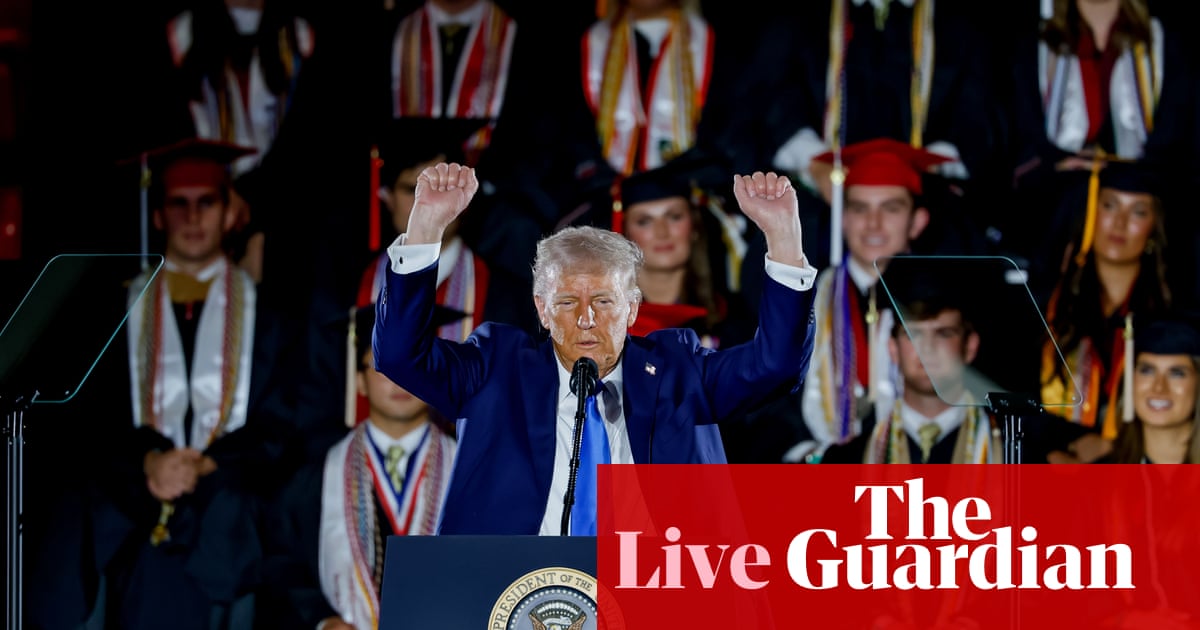Media rights group RSF warned Friday about “an alarming deterioration in press freedom” in the United States under Trump.
Paris-based Reporters Without Borders, which has been tracking press freedom for the last 23 years, highlighted how Trump had made difficult conditions worse by axing US financial support for state-backed broadcasters such as Voice of America and Radio Free Europe/Radio Liberty (RFE/RL), as well as US foreign development aid that assisted media outlets overseas.
After a fall of 11 places in 2024, the United States declined another two to 57th place on the 2025 World Press Freedom Index, one behind formerly war-torn Sierra Leone in west Africa.
The index, calculated according to the number of violent incidents involving journalists and other data compiled by experts, was topped by oil-rich Norway for the ninth year in a row. Estonia and the Netherlands were second and third.
“In the United States, Donald Trump’s second term as president has led to an alarming deterioration in press freedom, indicative of an authoritarian shift in government,” RSF said.
“His administration has weaponised institutions, cut support for independent media, and sidelined reporters.”
Large parts of the United States were now “news deserts,” RSF said.
Trump announced Wednesday that he was considering legal action against The New York Times, in his latest attack on a media outlet.
He is also suing media group Paramount over a pre-election interview last year of his Democratic rival Kamala Harris on its CBS channel.
Trump alleges it was edited to remove an embarrassing response, although many legal analysts view the case as baseless and likely to be dismissed or fail due to constitutional protections for freedom of the press.
Good morning and welcome to the US live blog amid news that Donald Trump has pulled funding from news outletsNPRand PBS, accusing them of being biased.
NPR andPBSare only partly funded by the US taxpayer and rely heavily on private donations.
The US president has long had an antagonistic relationship with most mainstream news media, previously describing them as the “enemy of the people”.
A notable exception is the powerful conservative broadcaster Fox News, some of whose hosts have taken on leading roles in his administration.
“National Public Radio (NPR) and the Public Broadcasting Service (PBS) receive taxpayer funds through the Corporation for Public Broadcasting (CPB),” Trump said in his executive order. “I therefore instruct the CPB board of directors and all executive departments and agencies to cease Federal funding forNPRand PBS.”
You can read our story from Agence France-Presse here:
In other news:
Mike Waltzwas relieved of his duties after clinging on for more than a month after the news broke that he had accidentally invited a journalist Trump hates to join a Signal group chat to plan strikes on Yemen in March.
After a morning of reporting on Waltz’s firing, the administration, put out a new line: Waltz had not been fired but promoted, since he had been nominated to be the new US ambassador to the UN. That framing was delivered on Fox News byPeter Doocy, a network correspondent, and thenJD Vance, the vice-president.
A Reuters photograph of Wednesday’s cabinet meeting that was previously overlooked showed that Waltz was still using Signal on his phone as recently as yesterday, to communicate with senior officials includingMarco Rubio,Steve Witkoff,Tulsi GabbardandJD Vance.
Waltz appears to have installed third-party software on his phone that allows Signal to be archived, but also makes it less secure.
US Supreme Court JusticeKetanji Brown Jacksonforcefully rejected what she called “relentless attacks” on the federal judiciary.
The US Army has developed detailed plans for a potential military parade on President Donald Trump’s birthday in June
Senate Democrats responded to the firing of Waltz by calling for another participant in the chat, defense secretaryPete Hegseth, to be fired.
Hegseth’s use of Signal to share confidential attack plans with his wife and brother is reportedly under investigation by the Pentagon’s acting inspector general.
